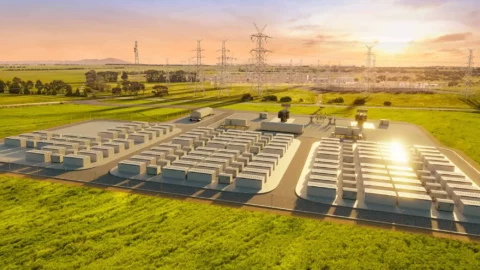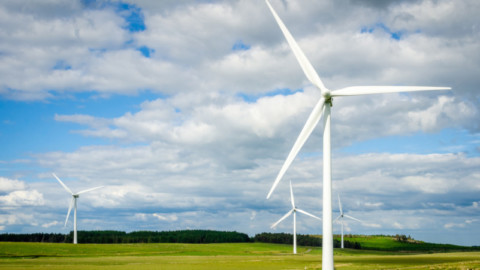Australia’s largest banks have had their performance towards their commitment to net zero and climate commitments assessed in a first-of-its-kind report.
The report, From laggards to leaders: An assessment of Australian banks’ climate commitments, found that while all big five banks have committed to net zero, but there remain big gaps between their headline commitments and the policies and practices to get there.
Report findings
The banks were assessed by the Australian Conservation Foundation (ACF), and were given a score out of a possible 100. The Commonwealth Bank scored 62, followed by NAB (55), Westpac (47), Macquarie (46) and ANZ (35).
Many of the policies on fossil fuel lending exclude most of the ways the banks raise finance for the coal, gas and oil sectors, leaving loopholes to continue financing fossil fuels.
Macquarie is the only bank to restrict lending to companies building new or expanded coal projects. CBA is the only bank to prohibit direct lending to new oil and gas projects. None of the banks have a policy to restrict lending to companies building new oil or gas.
ANZ has not disclosed any analysis to determine how the bank will be impacted by the impacts of climate change and the transition to net zero
The report showed Australia’s banks are not fully integrating action on climate change into their governance – for example by making it a board-level priority and incentivising senior management to achieve climate action targets.
Comments
ACF’s corporate campaigner and a co-author of the report, Jonathan Moylan, said that Australia’s first benchmark of banks’ net zero commitments report reveals that while the nation’s largest five banks have made some progress in the race to zero, there remain gaping holes in their policies and governance that must be filled.
“While banks have made bold headline commitments, we have found too many gaps in policies, performance and disclosure when it comes to progress towards the targets,” Mr Moylan said.
“When banks set targets relating to their exposure to coal, oil and gas, their goals tend to mention lending only, but when they report on their support for climate solutions, some include all the other financial services they provide, in addition to lending.
“ANZ performed particularly badly and is the only one of the major banks that does not employ climate scenario analysis to test its exposure to physical and transition risks or have adequate expertise at board level.
“Banks can and must play a key role in mitigating climate damage and scaling up solutions.
“Banks must be central in helping Australia seize the enormous opportunities of a renewable-powered economy.
“As Australia heads into what looks to be another summer of extreme weather, banks need to strengthen their policies to stop propping up projects that fuel the climate crisis.
“We want to see Australia’s banks drive action to tackle climate change, while championing best practice in governance, strategy and accountability.”
Chair of the Australian Climate and Biodiversity Foundation and Director of Accounting For Nature, Dr. Ken Henry, said in the report that responding to the threats posed by climate change demands the writing of new leadership narratives.
“Of course, government action is essential,” Mr Henry said.
“But Australia’s political leadership does not have a respectable legacy in dealing with climate change.
“Leadership has had to come from other quarters; notably many Australian businesses and industry associations have set higher ambitions than government in recent years.
“Consumers, investors, insurers, and workers are wanting to know how these commitments are being converted into action. Whilst businesses in all industry sectors are of interest, the transformation of bank balance sheets warrants especially close monitoring.
“There’s a lot riding on it.”

















Seems like the title has been uplifted from other Leaders & Laggards: Next-generation Environmental Regulation by Neil Gunningham and Darren Sinclair, Greenleaf Publishing 2002